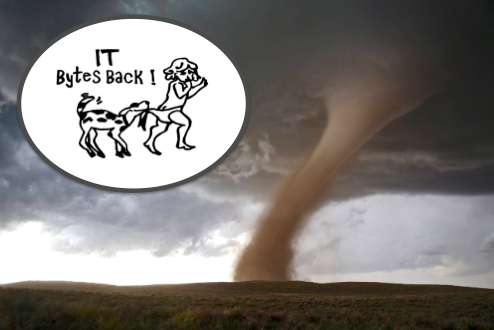Is it worth the risk?
In a time when the world’s weather is fluctuating so wildly and unpredictably due to global warming, this question begs to be thought through thoroughly by technologists and environmentalists alike.
Several reports have already been published claiming that the next-gen mobility technology, or 5G, could interfere with weather forecast – something that many nations consider as highly crucial information to save lives in today’s extreme weather.
How? Well, simply explained, 5G could jam the signal of satellites used to collect data collected for weather forecasts.
Meteorological satellites carry loads of instruments that measure atmospheric factors such as rain, vapor, snow, ice – that determine how the weather would be in coming hours, days and weeks.
However, the same 5G frequency bands that are (or have been) auctioned off by the communication agencies of many countries to future 5G network providers, include the very precise frequency bands that are used to collect data of these atmospheric variables.
For example, the 36-37 gigahertz (GHz) band is use to to study rain and snow; 50 GHz band for atmospheric temperature; 86-92 Ghz band to analyse cloud and ice.
Currently, this 5G risk to weather forecast seems to be most focused on the 23.8 GHz signal – which has been described as the ‘crown jewel’ of meteorological frequencies. It is because at 23.8 Ghz, water vapor in the atmosphere emits a faint microwave signal, which is then use to measure atmospheric humidity for storms and other developing weather.
The good thing is that this weather risk has not gone unnoticed and world regulators will meet in Egypt in October to decide which 5G frequencies should be used and levels of interference with Earth-observation frequencies.
Let’s hope the outcome would be a good forecast for both 5G proponents and environmentalists alike.
IT BYTES BACK! Says: Problem is, with 5G spectrums worth Billions of dollars in country sales, could the temptation be too big for some to simply to turn a blind eye to spectrum protection in their geographical region?








